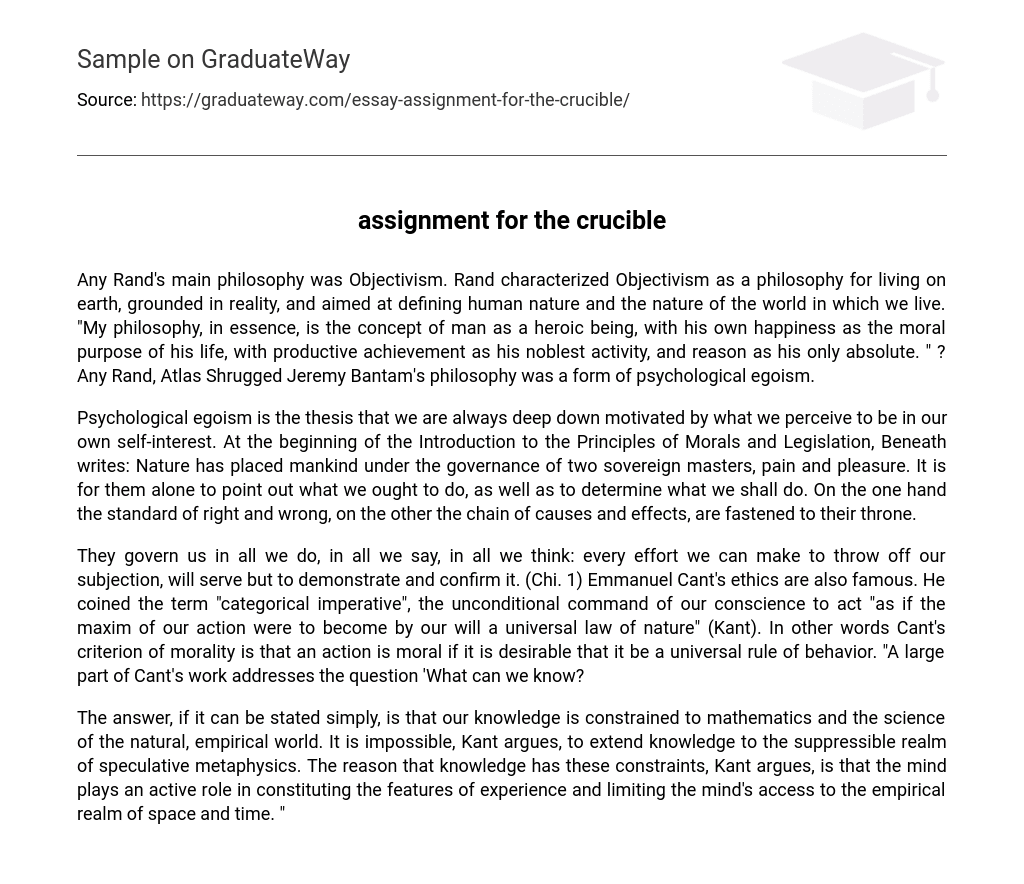Any Rand’s main philosophy was Objectivism. Rand characterized Objectivism as a philosophy for living on earth, grounded in reality, and aimed at defining human nature and the nature of the world in which we live. “My philosophy, in essence, is the concept of man as a heroic being, with his own happiness as the moral purpose of his life, with productive achievement as his noblest activity, and reason as his only absolute. ” ?Any Rand, Atlas Shrugged Jeremy Bantam’s philosophy was a form of psychological egoism.
Psychological egoism is the thesis that we are always deep down motivated by what we perceive to be in our own self-interest. At the beginning of the Introduction to the Principles of Morals and Legislation, Beneath writes: Nature has placed mankind under the governance of two sovereign masters, pain and pleasure. It is for them alone to point out what we ought to do, as well as to determine what we shall do. On the one hand the standard of right and wrong, on the other the chain of causes and effects, are fastened to their throne.
They govern us in all we do, in all we say, in all we think: every effort we can make to throw off our subjection, will serve but to demonstrate and confirm it. (Chi. 1) Emmanuel Cant’s ethics are also famous. He coined the term “categorical imperative”, the unconditional command of our conscience to act “as if the maxim of our action were to become by our will a universal law of nature” (Kant). In other words Cant’s criterion of morality is that an action is moral if it is desirable that it be a universal rule of behavior. “A large part of Cant’s work addresses the question ‘What can we know?
The answer, if it can be stated simply, is that our knowledge is constrained to mathematics and the science of the natural, empirical world. It is impossible, Kant argues, to extend knowledge to the suppressible realm of speculative metaphysics. The reason that knowledge has these constraints, Kant argues, is that the mind plays an active role in constituting the features of experience and limiting the mind’s access to the empirical realm of space and time. ”





